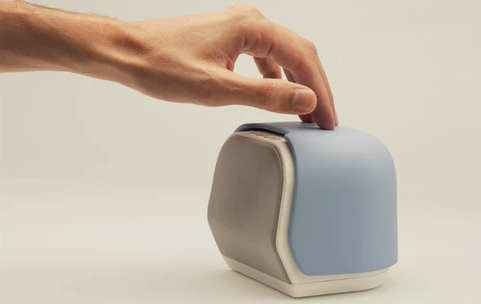For most people, mornings are a drag because of a lack of sleep. This leads to haphazrd, rushed mornings with barely any time to take a sip of coffee let alone wake up appropriately. And with more and more people dozing off to the drama of late-night Netflix binges or the glow of a smartphone, they’re experiencing more difficulty getting the kind of sound, restful sleep crucial to a successful day.
With the prevalence of this problem comes a glut of products designed to address it. Kello Labs’ Kello is a bedside companion not designed to be an alarm clock but rather a sleep trainer to help people achieve the kind of restorative sleep they need. Kello boasts a wide range of sleep programs in its tiny frame. Together, they can help users do everything from fall asleep faster (with a program that asks users to match their breath to a pattern of lights to more easily relax), snooze less (offering users just three chances a week to snooze), wake up earlier (by shaving minutes off each morning until users naturally wake up earlier), and even take better power naps. Kello integrates with services like Spotify and Deezer, so users can wake up to synced playlists or podcasts. It also integrates with smart home devices users can control by double tapping Kello, as well. Over time, Kello users should feel much more capable and get better starts to their days. Each goes for $109 and is expected to ship in May 2017 should its Kickstarter campaign raise $50,000 by October 21st, 2016.
Besides being a charmingly-designed addition to a sleep-deprived person’s bedroom, Kello is also functional. The idea of subtlety changing a person’s alarm earlier and earlier is novel and seems effective in its goal of sleep training. Still, people might find it too easy to ignore Kello despite its use of different sounds to jolt those who do out of sleep. The Ruggie still takes the cake for a sleep trainer with what seems to be most the effective way to get people out of bed — having them step directly on the clock itself.
